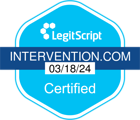This Elon Musk mega-mess is now, finally, too shrill to ignore. With Larry Ellison’s recent intervention of his friend and protégé cut short when Musk reportedly left before help would hold, Ellison is now in a muddle. A muddle millions relate to. If I could, I would encourage Ellison not to give up, not give in, and not take NO as a final answer.
Musk is, as we all know, the self-made richest man on the planet, whose impaired management of X, SpaceX & Tesla over many years now is costing shareholders billions of dollars in losses. While Musk has all the money and maybe even all the drugs one could desire, including the K, the X, the Cocaine, and the LSD, he lacks the peace of mind that comes from emotional and physical stability.
For those coming in cold, The Wall Street Journal’s incredibly well-researched and sourced story began the national conversation over the mix of mind-altering drugs sitting in the middle of the Musk mess. The Journal’s series alleges how ketamine, acid, MDMA, cannabis, and stimulants are at the core of Musk’s dysregulation at the center of the fire burning up Tesla, X, and SpaceX.
Long before the current headlines over well-researched articles in The Journal appeared, the private life of Elon Musk intersected with the public workplace of his life. For those in the public eye, headlines are often an action-triggering event. A video released by SpaceX in 2017 shows Musk during a mic-in-hand presentation, nosediving into baby babble, rambling, and slurring his words.
There have been no reassurances from the boards to calm investor fear. The opposite has occurred in fact as two directors departed after failing to see their impaired leader concerns taken seriously.
As the interventionist corporations, movie studios, and intimates call to keep suffering humans out of the headlines, what’s clear to me is that Elon has an absence of those who can leverage the current crisis to intervene. Yet what connects Musk with so many who struggle right in front of us, is that the need for an intervention showed itself long ago, only to be met by little or no action.
In the US each year more than 350 million struggle with substance use, mental health needs, and eating disorders. Most will never receive meaningful help, burning up in an inferno of their own making.
When the fellow on fire is also one of the planet’s richest, intervening is a tall order. The dual relationships Musk has with vendors NASA and the US Department of Defense alone make for high-intensity but also highly viable intervention leverage.
“People close to Musk, who is now 52, said his drug use is ongoing, especially his consumption of ketamine,” The Journal reports. The behavior is not sustainable. I know as I have managed more than 1,300 interventions since beginning this work nearly 20 years ago.
I’ve never met Elon and nobody in his circle has asked me to intervene. As the nation’s leading interventionist, I started getting Elon inquiries by the press a few years ago. I emailed Elon once to let him know he’s welcome to ring me. It bounced, undeliverable.
I was intrinsically linked to stimulants, alcohol, ketamine, and nicotine and my circle of support didn’t take NO for an answer. Thank goodness or I’m sure I would be dead. A video of me did exist, before the age of YouTube, that was damning and sped up the intervention that saved my life.
An invitational intervention, the evidence-based method I have practiced for nearly two decades, is collaborative and coercive by nature. In invitational intervention, we circle up the voices that matter—representatives from the job, board, family, lawyers, vendors, insurance reps, friends, doctors, bankers, and the like, to leverage organ driving at the moment with a less than optimal operating system. We harness the various relationships because together we do what we cannot apart. We interrupt chaos and introduce the notion of a time-out for mental health care, support, and yes, treatment. The more leverage points we have, the better.
Considering Elon’s understood structure, his world features opportunities from every category—the ideal prospect. The more opportunities, the more strength in the arena. I empathize with the circles surrounding Musk in this curious time. Who will be brave enough to circle up and intervene? Who will be remembered as a helper instead of a partner in his demise?
Musk is undoubtedly a visionary creator and entrepreneur. A hundred years from now his name will likely follow Edison, Tesla, and Ford when listing industrial geniuses. Whether it ends with how he died at a young age, tragically, due to mental health and addiction issues remains to be seen. An intervention is not an indictment. Rather, it is a constructive shot over the bow, aimed at addressing concerns and supporting an individual’s path to transformation and change. Somebody step up and rally the troops. Please! This man is dying in plain sight.
Money, fame, genius, power—none change the psychology and emotions people go through when trying to help a loved one. Elon Musk is just like all of us in this way: We live and breathe and die in plain sight, as those around us take NO and decide that is the final answer. My hope is Larry Ellison reboots his intervention effort and helps his friend say YES to help before the final word is spoken.
